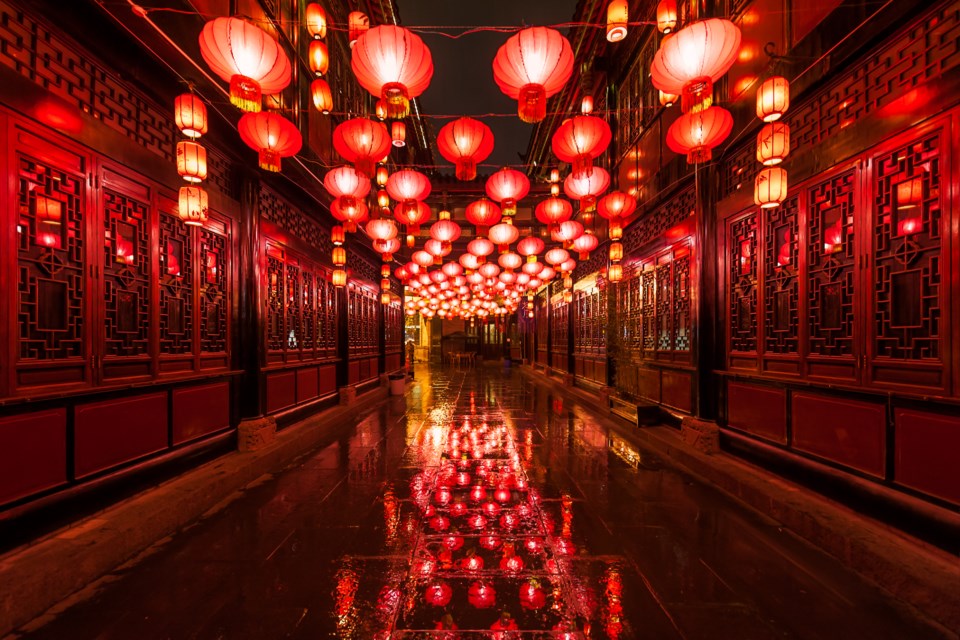After holding a sumptuous Chinese New Year banquet to kick off the Lunar New Year, the Moose Jaw Chinese Community Network plans to host another event to end the two-week celebrations.
The network will hold a Lantern Festival Gala on Saturday, Feb. 4, at the Grant Hall Hotel. A cash bar opens at 5 p.m., with a buffet dinner at 6 p.m. and a program to follow featuring a dozen live performances, including dancers from the Saskatoon Dancing Group.
Tickets are $80 each or $620 for a corporate table of eight. They can be purchased at the hotel on 401 Main Street North (306-691-2113) or the Delight Café and Wok at 314 Fourth Avenue Southwest (306-630-1003).
A Chinese lantern festival — Yuan Xiao Jie or Yuanxiao Festival— is the 15th day after the start of the Lunar New Year that marks the first full moon of the year and celebrates the end of the spring festival period.
On the night of the Chinese Lantern Festival, streets are normally decorated with colourful lanterns, often with riddles written on them. People eat sweet rice balls called tangyuan, watch dragon and lion dances, and set off fireworks.
The lanterns symbolize people letting go of the past year, welcoming the new year with good fortune and "illuminating the future." It is a way for people to pray that they will have smooth futures and to express their best wishes for their families.
Guessing (solving) lantern riddles started in the Song Dynasty (960 A.D. to 1279 A.D.) and is one of the most important and popular activities of the Lantern Festival. Lantern owners write riddles on paper notes and paste them on colourful lanterns. People crowd around to guess the riddles.
If people think they have the right answer, they can pull the riddle off and go to the lantern owner to check their answer. If they are right, there is usually a small prize.
Meanwhile, Chinese people (traditionally) regard the lion as a symbol of bravery and strength and believe its appearance can drive away evil and protect people and their livestock. They also worship the dragon and regard it as a symbol of good luck.
The Chinese Lantern Festival can be traced back to 2,000 years ago and has two origin stories.
One story goes that at the beginning of the Eastern Han Dynasty (25 A.D. to 220 A.D.), Emperor Hanmingdi was an advocate of Buddhism. He heard that some monks lit lanterns in their temples to show respect to Buddha on the 15th day of the first lunar month.
Therefore, he ordered all the temples, households, and royal palaces to light lanterns that evening. This Buddhist custom gradually became a grand festival among the people of China.
The second story goes that villagers killed the Jade Emperor's favourite crane. So, he decided to destroy the village with fire on the 15th day of the lunar year. The Jade Emperor's daughter felt sad about this and warned the villagers.
Then, a wise man advised the villagers to hang red lanterns to give the Jade Emperor the impression that the village was already on fire. The emperor was fooled and the village survived.
The Moose Jaw Chinese Community Network is still looking for financial sponsors to support the evening. An entertainment sponsor is $500 and a raffle prize sponsor is $250.
Anyone interested can email [email protected] to discuss the event and how best to be involved.




